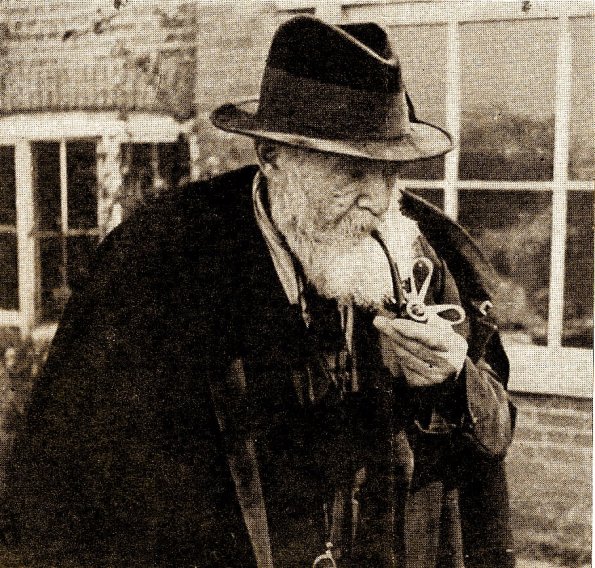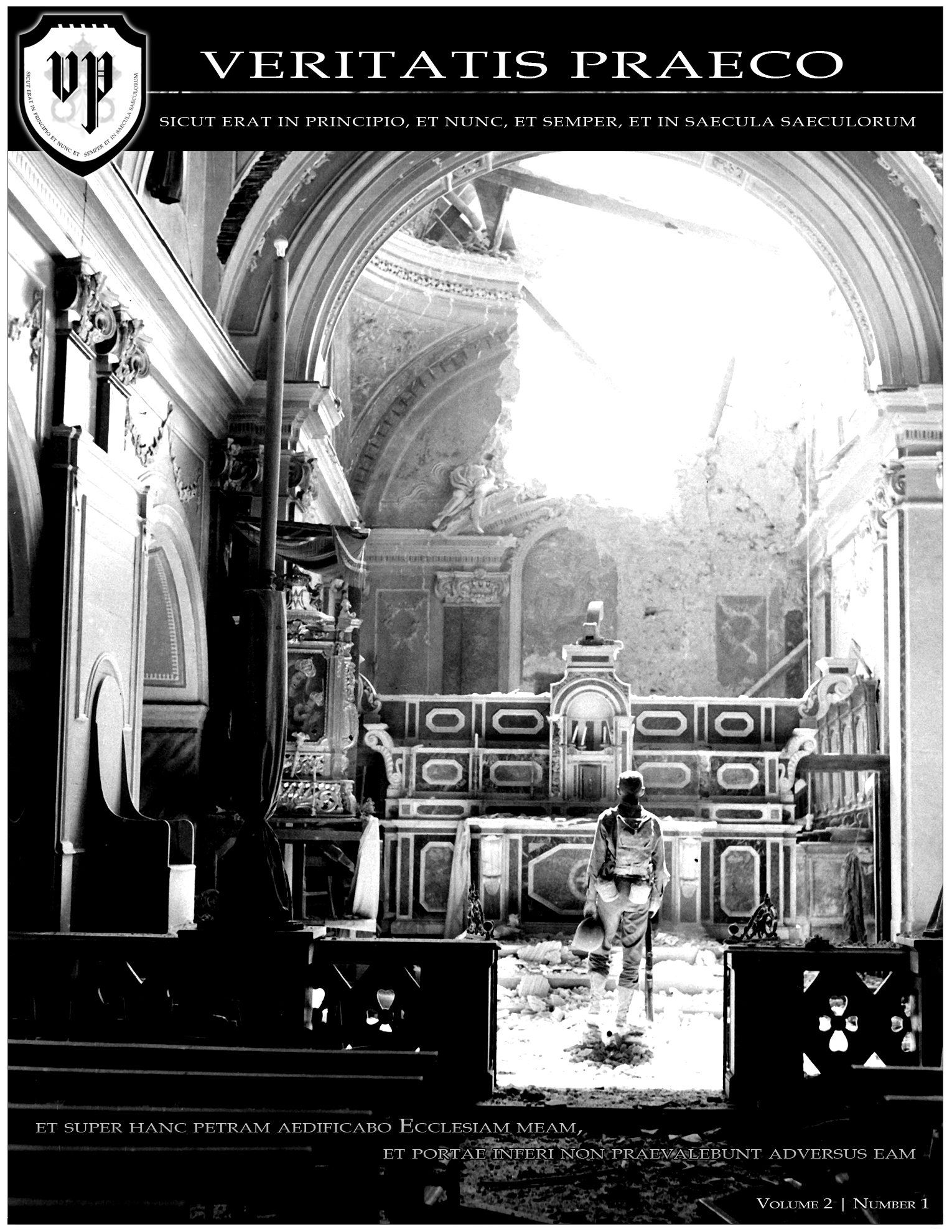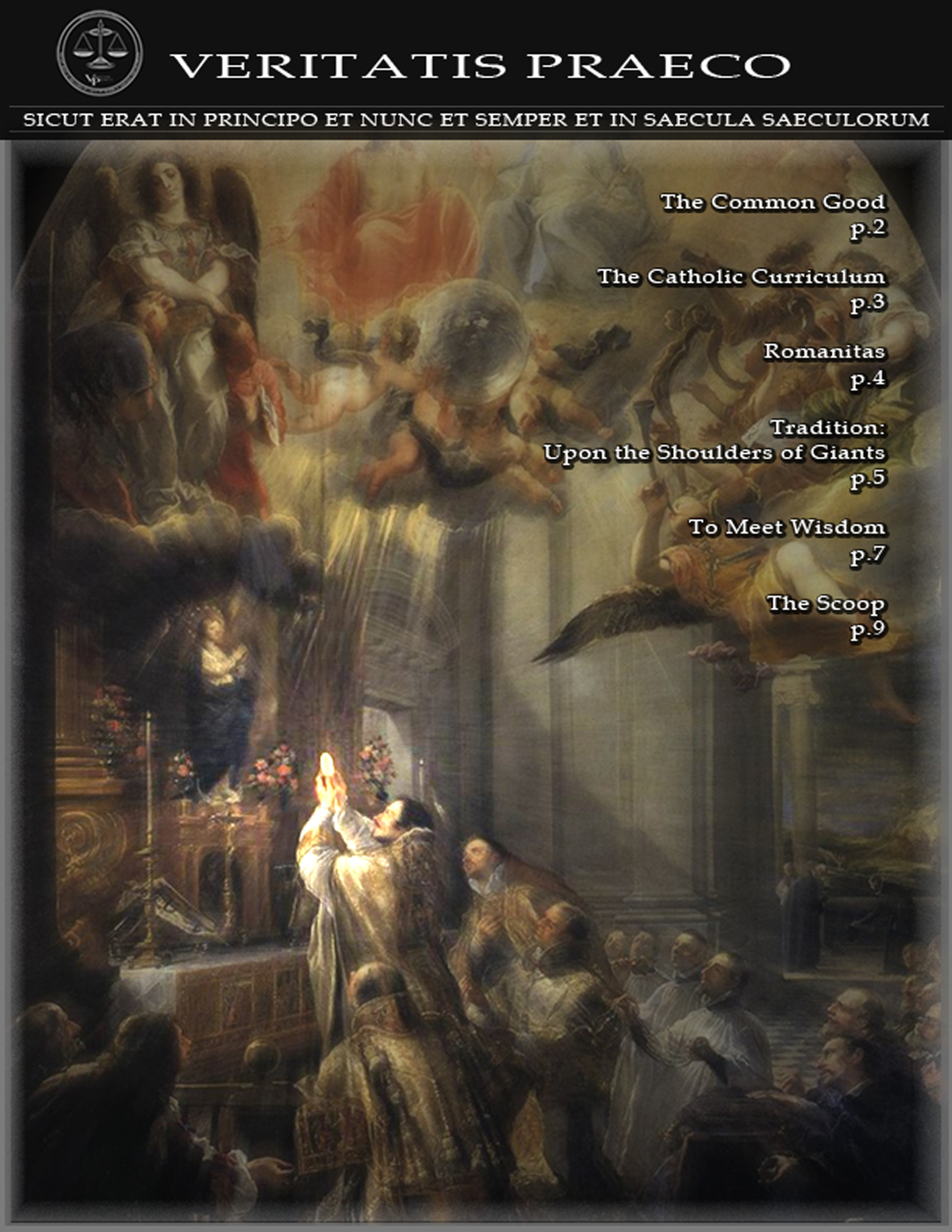Archive
The Crisis in the 21st Century – I.III. Economy (Part II)
A maniacally independent society is a maniacally divisive society. From an unshakeable belief in scientific research which is still trying to find the smallest constituent parts of matter (and simultaneously postulating that nothing material is anything more than an aggregate of composite parts), to an exorbitant divorce rate, Western civilization cannot help but individuate everything possible. Thus, the perspective of economy as a science, as a hard science, pursues its study with man on the periphery at best and at times altogether dismissed; as with the rest of the hard sciences, economics have insisted upon keeping the individual man a perpetual bachelor. In other words, and in a great sad irony, the economic science which promotes a radically individualistic capitalism, may have some vague conception of man as mankind in its deliberations, but has no real conception of man as the individual – that is, as a dignified being in the image and likeness of God who is inherently anything but well-served by individualism.
Ultimately, capitalism, though it begins nobly in giving each man a relatively equal chance to establish his own business and succeed, comes to expect a divine flawlessness in the underprivileged man. At its worst, capitalism starves off those who fall on a streak of bad luck or begin life impoverished; at its best, it develops the impersonal pity of a governmentally redistributed handouts: “Capitalism must keep alive, by non-Capitalist methods, great masses of the population who would otherwise starve to death.”1 Does this seem improbable, untrue, a mere witty retort? Recent history would suggest otherwise. Unable to compete with lower manufacturing costs across seas, the major American car companies, all in economic trouble as a result of an oversaturated market and an economic plan built on high product turnover, have had to lay-off unparalleled numbers of employees. Poverty in Michigan due to unemployment has reached such levels that not only are countless numbers of people relying on welfare, but cities, such as Flint and Detroit and other places built around America being economically viable in the industrial mass-production of goods, having once bloated themselves to unsustainable levels on capitalistic lard, are now dying.[2][3]

Joseph Pearce
Built upon premises of growth and innovation, on replacing the old and same with the new and improved, capitalism has sacrificed the good of man for the good of consumptive quality of that produced. The most obvious evidence of this is the enormous number of products sold in the United States that are produced in China; and if not, in some other foreign country with cheap labor. Once dominating only the markets of cheap goods (in itself a problematic situation), technological capabilities that do not correspond to improved working conditions or better pay have enabled countries such as China to provide cheaper products of comparable quality to those produced in the United States. Well, objectors will say, why not purchase from China? What is wrong with purchasing things from China? Objectively, nothing; but the circumstances dictate otherwise. To whom is the money spent on Chinese products going? What is that money supporting? Under what conditions are the product produced? Economically speaking, these questions, left unanswered, are troubling. The answers, once given, are downright morally disturbing.4 Are these impoverished people to not only have their conditions accepted by the relative comfortable people of the West, but exacerbated by the capitalistic tendency that rewards a dehumanizing profit-seeking necessary to the preservation of the capitalist economic model? The lower a company’s overhead, the more it can focus on production, marketing, selling, research and development; but all too often, as capitalist companies grow, the only means of reducing overhead, and thus remaining competitive, is to seek means which increasingly devalue the worker: cutting corners on working materials, working conditions, worker’s compensation, anything so long as the product continues to sell and profits continue to mount.
Disregard for the workers is, however, only one of the dangers of capitalist economic principles. Coinciding with reckless in regarding human rights, capitalism perennially take a reckless approach to both the quality of the products produced and towards the environment upon which it is built. As regards the latter, there will be no speculation upon “green” technology; but it will and must be said that man is supposed to be a steward when it comes to the earth, not a conqueror. As a bridge between these two avenues of reckless capitalist driving, the prevalence of agribusiness has resulted not only in the destruction of great amounts of biological diversity, both in rural America and England, but also in significantly damaging the quality of the crops produced. The debacle of Genetically Modified Organisms – crops produced from seeds in which the genes have been modified so as to be immune to pesticides, allowing larger amounts of crops to be planted, cared for, and harvested without significant losses due to natural occurrences despite employing fewer farmers – proved quite adequately how the reckless pursuit of profit results in disaster.5 Could these companies not simply restrain themselves from constantly seeking to expand? No; for this sort of profit growth is necessary in an economic system that rewards only those companies that continue to grow and punishes those that try to maintain a level of sustenance; the small businesses (by which are meant those that have fewer than 20 or 30 employees – the Small Business Association considers businesses with up to 1500 “small” in some industries) that thrive today do so out of positively un-capitalist tendencies amongst people who have become fed up with poor quality and poor service. Nonetheless, they are in constant threat of capitulation to those larger organizations that insist upon not merely beating the competition, but ultimately destroying it.
Yet the problems with supporting such businesses are skewed not just in the realm of observable human action, of fiscal transactions, of product quality, and of , but with the fundamentals of human nature.

Hilaire Belloc, Man of Letters and Distributist Champion
Aristotle once said that “man is by nature a political animal.”6 To the contemporary English-speaking mind, politics is at once indivisibly associated with but separate from economics; the former exists as sort of a bracketed channel by theories of the latter are implemented. Yet the Greek word politikos, connotes not mere politics according to the modern English-speaking conception, but to that of the citizen, that of the man who is engaged in the well-being of the societal whole. Man is a societal animal (the “animal” part is not exactly correct, but, well, that is another topic altogether). This means that he is, by his very nature, economic, insofar as economy deals explicitly and necessarily with property. But he is also social: no man after all, really is an island. Transactions of property and wealth necessarily entail some interaction on the level of humanity; otherwise there is no guarantee of justice between them. A man buying from someone he does not know, whose conditions he does not know, does not know where his product came from, how it was produced, or whether or not he paid a just price. More importantly, by helping those who are very far away, he is likely not helping himself; by which is meant he is likely not helping his community. Cheaper computers produced in China may improve man’s ability to purchase that upgrade for his satellite programming package; meanwhile, his neighbor, a man with whom he has many things in common but has never met, whose son is best friends with the first man’s son, a few houses down is put out of his local custom computer business because his products cost a little bit more money. It happens. It also happens that men who work hard day and night support other men and their families; the work of the low level employee in a thoroughly capitalist system inevitably results in the increased earnings of those higher in the company.
What has been outlined here, in a via negativa (negative way, that is, by showing what is lacking), is the economic system known as distributism. As with many good things, it is misunderstood by almost everyone. Socialists see it as too far to the right and capitalists as too far to the left. Socialists and capitalists, however, have respectively gone so far to the left and so far to the right that, in both situations, the means of production are in the control of the relatively few. Hilaire Belloc, in his economic magnum opus titled The Servile State, defines the unjust economic theories ironic collision thus: “That arrangement of society in which so considerable a number of the families and individuals are constrained by positive law to labour for the advantage of other families and individual as to stamp the whole community with the mark of such labour we call The Servile State.”7 Contrariwise, distributism stands in polar opposition this servile state, for it insists upon the means of production being in the hands of the many. This stance is, and long has been, vehemently denounced as economically unviable, impractical, and idealistic. In the sense of economics as a pure science – divorced from its natural spouse the social, societal, political, economical man – it is indeed unviable, impractical, and idealistic, for its principle premise is neither monetary profit nor material gain, but the respect for the dignity of the human person: “the difference between servitude and freedom, appreciable in a thousand details of actual life, is most glaring in this: that the free man can refuse his labour and use that refusal as an instrument wherewith to bargain; while the slave has no such instrument or power to bargain at all, but is dependent for his well-being upon the custom of society, backed by the regulation of such of its laws as may protect and guarantee the slave.”8
But now the question must be asked: in this pervasively servile state, how can man be freed?
—
1 Belloc, Hillaire, The Servile State. (from memory; no text to hand).
2 http://www.nytimes.com/2009/04/22/business/22flint.html
3 http://www.forbes.com/2008/08/04/economy-ohio-michigan-biz_cx_jz_0805dying.html
4 http://frwebgate.access.gpo.gov/cgi-bin/getdoc.cgi?dbname=109_house_hearings&docid=f:26031.wais – http://www.pbs.org/newshour/bb/business/july-dec07/china_11-20.html – http://www.nlcnet.org/article.php?id=613
5 Cf. Pearce, Joseph, Small is Still Beautiful (Wilmington: ISI Books) pp. 154-190. Pearce’s book also discusses the capitalist conquest of small brewers and subsequent microbrew revolution on pp. 103-115.
6 Aristotle, Politics (New York: Penguin Books, 1992) 59.
7 Belloc, Hilare, Belloc (New York: Alfred A. Knopf, Inc., 1970) 175.
8 Ibid.
The Cult of Truth, the Cult of Progress
The word “cult,” as applied to a person’s life-orienting beliefs, has two very different but nonetheless indissolubly linked meanings. There is the common negative meaning, as is applied correctly to the Branch Davidians, the Church of Scientology, and the Church of Latter-Day Saints, in which a number of people are bound together by common self-subjection to an unquestionable premise. There is also the positive meaning – most notably used by St. Thomas Aquinas in the phrase, “the cult of latria,” (see Chapter 120, Summa Contra Gentiles, Book 3) – which describes the totality of the practices or objects associated with some object of veneration or worship. Thus, the cult or cultus of a saint – the Blessed Mother, for instance – would contain all of the relics, devotions, and prayers associated with that saint – such as the Rosary, the Salve Regina, the Angelus, so on and so forth. Where this cultus of a saint is bound up within and for his veneration, it is elevated to the cult of worship, or latria, for the Divine, which then naturally subsumes all that goes into the veneration of the saints, as His servants; it is the totality of praise.
The former sort of cult, the negative type, is not entirely different from its noble opposite, if such a paradox may be excused for the moment; for the cult that demands unquestioning obedience, in a pale and hollow parody, also accumulates the totality of something within and for the sake of another something. Instead of symbols and signs within and for the veneration of a person or the worship of the Divine, however, it accumulates the totality of a person’s behavior within and for the veneration and praise of symbols and signs that have no true referents. This empty sort of cult has a persistent and uninterrupted monolocution of calcified ideological rhetoric, which bears no regard for the truth. It is the authoritative unreasoned word, which attempts to crowd out all other voices.
There is a popular lie amongst those who are intractably committed to the idea of “progress,” by which is meant something indiscernible for its vagueness, that Traditionalist Catholics, the worst of all superstitious and backwards cults in the negative sense, would like to see every modern innovation, from the personal computer to the contraceptive pill, completely and entirely obliterated, crowded out of the consciousness of mankind by the authoritarian voice of unreasoning propaganda issued from the pulpit. Such innovations, in the eyes of these progressives, are indivisible from one another, for both are the result of Progress, that which has made man’s life so much better, that which has saved lives, given people freedom, that which is responsible for the Declaration of Independence and the airplane; that – to be perfectly frank – undefined, unlimited, unrestrained, and completely fictional god of modernity, Progress. If there is a monological cult of unreasoning submission in the 21st century, it is that of Progress, its god of the same name.
Like the deities of all cults, Progress is a figure of smoke and mirrors; an insubstantial vapor enlarged to a seemingly divine magnitude. In what does Progress result: woman’s suffrage, the personal computer, the contraceptive pill, a coffee pot that brews 12 cups in 3 minutes, systematic euthanasia? These proponents of Progress, who sometimes proudly and sometimes discreetly postulate these inventions as children of the prodigiously procreating god, describe Progress as itself born of contention, and dissatisfaction, of rejecting that which is Old in favor of that which is New. In the words of H.L. Mencken, American critic of the early 20th century, “the world gets ahead by losing its illusions, and not by fostering them. Nothing, perhaps, is more painful than disillusion, but all the same, nothing is more necessary.”1 Thus, according to the doctrine of the progressives, Copernicus, Galileo, Newton, the forerunners of the French Revolution (glossing over the murderous Robespierre, of course), Susan B. Anthony, Margaret Sanger (a eugenicist long before Justice Ginsberg, but in the same vein), Martin Luther King Jr., and all such men and women are champions of Progress, because they challenged the institutions before them, because they, against the illusions of their predecessors, invented by virtue of their disillusion new devices and methods, and made men (and women!) so much freer; revolution praised for the sake of being revolutionary. Truthfully, however, the most progress was created by those who did not revolt and merely reformed. The scientists, Copernicus, Galileo, and Newton, had genuine progress (though Galileo was impudent and disobeyed the Church’s exhortation to teach heliocentrism within scientific circles as theory, instead promoting it as definite fact, and thus was put under comfortable house arrest by the office of the Inquisition), not based on rejection of older work for the sake of rejection, but based, as Newton himself said, upon the work of their forebears: “If I have seen a little farther it is by standing on the shoulders of Giants.” Likewise, the men who revolutionized the technological age, from the Wright Brothers to Steve Jobs, did so not out of disillusion, but out of fantasy, out of dreaming for something that was not yet but was not so far off as to be impossible. Such men had true progress because they did not insist upon knocking the whole totem of tradition down, but by climbing it; they progressed because they had a goal towards which their efforts aimed: the true and the good.

H.L. Mencken, Progressive Ordinaire; bad philosophy, bad hair
In contrast to Progress, and in accord with the motivational sentiments of the truly progressive, the cult of Catholicism, which is the cult of latria of the Divine, is the most truly dialogical cult that ever has been. From the transcendence of the Divine to which it appeals comes not only one Voice, only one Word, but Three that are yet mysteriously One. This transcendental dialogue furthermore permeates the earthly Church; and though the minds of Her members can receive such voiced Truth only by a limited channel, that which is received may unfold infinitely, may be discussed, debated, be broken into an infinite number of disagreements and yet, so long as they are resolved correctly, never err. Thus the univocal speech of the Catholic faith, to those who refuse to engage it in dialogue, who refuse to introduce to the Church their doubts, their qualms, their reasons, and even more sadly refuse to listen to what She has to say and consider it, seems a monologue aged into a hard, brittle, fossil and vainly protected by a veil of illogical reverence for an illusory eternity. But like those who affect real progress, men like the guy who invented the wheel, Ebers Papyrus, Ibn al-Nafis, William Harvey (oh those backwards pre-moderns! Papyrus and al-Nafis lived in 1600 BC and 1242 AD, respectively), Albert Einstein, and so many, many others, the Church has always been genuinely progressive, not in spite of its illusions, but because of them; because She has always sought that which She cannot see, but which She knows is there, can be discovered, articulated, can be spoken. The Cult of Catholicism is the Cult of Truth.
The Cult of Progress, it must finally be noted, in contrast to the actuality of progress, is built not upon contention, but upon a logical fallacy. Since two events occurred in the same era, the Cult says, they must be part of some unified chronologically linear cause; since both are desired by a certain number of people, since both claim to make man’s life better, they must both do so. A occurs in X; B occurs in X; therefore X is the cause of A and B. As with all logical fallacies heavily and obstinately relied upon, that of the Cult of Progress is grown out of a frustration: the desire to deny that anything is truly and objectively good, that men accomplish more by virtue of their dreams than their disillusions, and that man achieves the most progress not by floating along with the stream of a historical inevitability, but by his own efforts; and most especially, the Cult of Progress is frustrated with just how many of those men who have done so have done it within the teachings of the Holy Catholic Church.
—
1 Mencken, H.L, A Second Mencken Chrestomathy. (New York: Alfred A. Knopf, Inc.) 100.
An Apology
For the lack of posts. The vast majority of the work has fallen to but a few of us (slackers!) and has gotten the best of us; motivation flagged a bit and the quality, I think, has noticeably declined. Hopefully others will pick up in the near future, and I myself have sketched out a number of topics that should be interesting.
A Little Madness to the Method
Writing something good is never easy. It almost always requires a lot of fore-thought and preceding structure in order to convey to the reader a cogent message, an end; very seldom can truth be transmitted in writing without a structure, a discernable methodology, to that which is written. Vers libre is a great example of this difficulty: though it seems devoid of any strongly defined form, the best free verse poems always possess it in a way that is fitting both to the lack of regularity and the content. Great paintings or drawings still need lines, limitations, boundaries, colors – or the lack thereof; so too does great poetry realize its limitations, even when it breaks from the conventions. The Waste Land puts the free verse form to its best use, in its content’s seeming disjointedness, its jolting juxtaposition of imagery and words, and its helter-skelter dialect, all reinforce the fact that the poem does have structure, does have five parts, does have a beginning, middle, and end. Yet it is not good poetry because T.S. Eliot sat down and decided, “I ought to chop coherent a string of unrelated coherent thoughts into incoherent phrases and assemble them, ultimately creating a coherent whole, in five parts.” In fact, Ezra Pound was the one who suggested Eliot remove phrases here and there throughout, giving the poem its distinctive rhythmic and cogent discontinuity. What Eliot started with was not a method of writing, but an idea of what to write about; presumably, to judge by the poem’s somewhat vaguely inferred meaning, the dissolution of the continuity in the modern world, the jarring of a world that has cast off its metaphysical considerations and is just now realizing, with horror, what that entails. Indeed, what can conceivably be derived from Eliot’s Waste Land, though with admitted imposition on an impossibly indefinite poem, is the terror that comes to a world in which there is nothing other than method. Though not of itself a bad thing, method can never be anything more than a mere accident of the causality, of the totality, which results in some effect without the effect being fundamentally flawed.
What is method? Denotatively, it is the manner, procedure, or technique employed in order to achieve some particular end. In the sciences, by which is more or less meant those ordered bodies of knowledge about some definite subject matter, method did not achieve precedence until the work of Rene Descartes, whose Discourse on Method has had a profound and lasting effect on man’s perception as to what constitutes certitude. Disillusioned with the natural sciences, Descartes set out to determine a new way of conducting, orienting, and grounding his reasoning; philosophy gave him no certitude, and though theology did, there was nothing against which he could hold it, and its pure transcendence left him feeling a lack (ironically, Descartes insists in his Discourse that he is not suggesting his method for anyone else, and yet his certainty in mathematical rigor pervades almost every science today).

T. S. Eliot
Ultimately, what Descartes sought above all was the undeniable, the complete enumeration of everything whatsoever relevant to his subject matter, starting with that which was smallest among the constituency of any problem, situation, or object of study. Thus, he made his method of inquiry more important than that about which he was inquiring: his own mind set the rules, rather than the reality to which those rules were subsequently applied. Ultimately, what Descartes wrought was a system incapable of fulfilling its aims: by placing his methodology first and foremost in any endeavor, he assured that the inquiry would never get beyond its self-imposed limitations. No enumeration is every fully complete, for the realm of possibility, the chance that there could be something out there yet undiscovered, something yet-to-happen, always leaves a possibility of error, of miscalculation. Every judgment, every calculation, every mathematical formula, though it may work perfectly in theory, is always somewhat inaccurate in reality. While this method has great value in maintaining a healthy skepticism in certain sciences, it is all too frequently applied to bigger, more universal subjects of inquiry, such as literature or philosophy.
In contrast to Descartes’ flawed method, and undue elevation of methodology, is that sort of inquiry which innately examines the world in front of it, which considers things as they are; that which proceeds, in the language of Scholasticism, a posteriori. This manner of inquiry starts not with presuppositions or some rigidly defined criterion of certainty, but with those things that are immediately, naturally observable; and somewhat paradoxically, it starts where it ends. In other words, when the inquirer sees a stone, he sees the stone, and is likely confident as to what it is. Its weight and dimensions of depth, though they may corroborate his observation, do not determine it; instead, he looks for something other than its qualities which may be cut up and quantified in any number of ways. Descartes’ method insists upon dividing every problem, every obstacle encountered on the way to truth, into the smallest possible parts. This contrary “method,” which is not really a method at all but simply man’s natural though all-too-often neglected mode of being in a world of knowable objects, insists instead upon seeing the whole of a thing before seeing its parts. This is the method of phenomenological inquiry. Of course, since every individual object is part of some greater whole, there are some complications in simply looking at it this way; a simple way to conceive of it is by what Hans-Georg Gadamer termed the “hermeneutic circle,” that which attempts understanding of every object (or totality of related objects) by referring the parts to the whole and considering the whole in relation to each of its parts. Seeing a thing merely as an object to be quantified, or as that which must be squeezed into the framework of a definite method, is a sure way to miss the truth nature of not only that particular thing, but of all those things which are related to it.
On a practical level, this inadmissibility of the primacy of method can be seen in many ways. In literature, for instance, if one were to apply a rigorous, mathematical method of interpretation of T.S. Eliot’s Waste Land, all he would return is the irregularity of meter and language. In philosophy, the Cartesian methodology (and all its progeny) fail to account for the ontology of objects themselves, for the rule and measure of all things becomes that which comes forth in theory from the human mind. Even in the sciences such as physics and chemistry, it ultimately fails to provide full, complete answers as to what their subjects are, or how they do what they do; any explanation of the natural world by math leaves man hanging, because he cannot explain math by math.
Method, as man’s means to meaning, is madness.
A Catholic Alternative to Life Teen
Everyone knows about Life Teen. It has essentially become the only recognized “youth-oriented” function of the Catholic Church and exists in some form or another in every Diocese in the United States. Its growing ubiquity, however, has produced an interesting side effect; that is, that a parish’s lack of Life teen is seen as just that, a lack. A parish is hard pressed to reject a Life Teen program outright as it will face a charge of being distant from, or unconcerned with its youth. So, the absence of Life Teen in a parish is usually seen as something that “they just haven’t gotten to yet” or “they’ll get once they’re bigger.” Like it or not, it really seems to be a parish’s only option when it comes to catering to youngsters.
Enter Juventutem. An organization founded in May of 2006 who’s aim is to “foster the sanctification of the youths worldwide according to the Roman traditions of the Church.” Just this description alone is about the biggest breath of fresh air that I’ve gotten in a long time; there is actually a Catholic alternative to Life Teen! If you continue to read their mission statement and the other elements of their program, you find that they are about as well-grounded as one can be when it comes to programs aimed at youth. That is, they treat their involvement with the children as one aimed at bringing about a movement, a movement from the spiritual infancy in which such programs typically find their members, towards the kind of maturity that should be expected of catholic teenagers, and even adults. They have their members make such promises as weekly adoration and at least yearly attendance of a mass in the extraordinary form.
My purpose here is not to attack Life Teen, but I believe that in the interest of demonstrating just how unique Juventutem is in the world of Catholic youth programs it is interesting to compare the picture that either organization currently has on its homepage.

Juventutem's Homepage
And then there’s…this

Life Teen's Homepage
Now I know that pictures such as these are not exactly illustrative of the inherent differences between the two organizations, but it does provide a unique (and undeniably funny) glimpse into certain aspects of either group which words may not be able to convey, or at least that they do not convey, I’ll just leave it up to you to figure out exactly what that is.
Juventutem’s dedication to the Traditional Latin Mass may lead one to believe that they are more of an “old mass club” than they are a group dedicated to reaching out to the youth, but the point is that they could easily be used as the foundation of a youth program at any parish around the U.S. whish is seeking an alternative to the “charismatic” and “progressive” attitude which so characterizes Life Teen. In the same way that not everyone is devoted to the Old Rite, not everyone is devoted to drums and guitar solos during mass either. The exciting thing about Juventutem is that they allow pastors of conservative parishes to cater particularly to their youth without being pressured into using Life Teen for fear of having that dreaded “lack” of a youth program.
I understand that Juventutem does not portray themselves as an alternative to Life Teen, but we are in desparate times, and they fit the mold. Juventutem is principle driven and has an idea of formation which is other than “meeting them where they are,” it is based on principles which more resemble those of good parenting rather than those of a cool, young uncle who lets you stay up late and watch R-rated movies.








